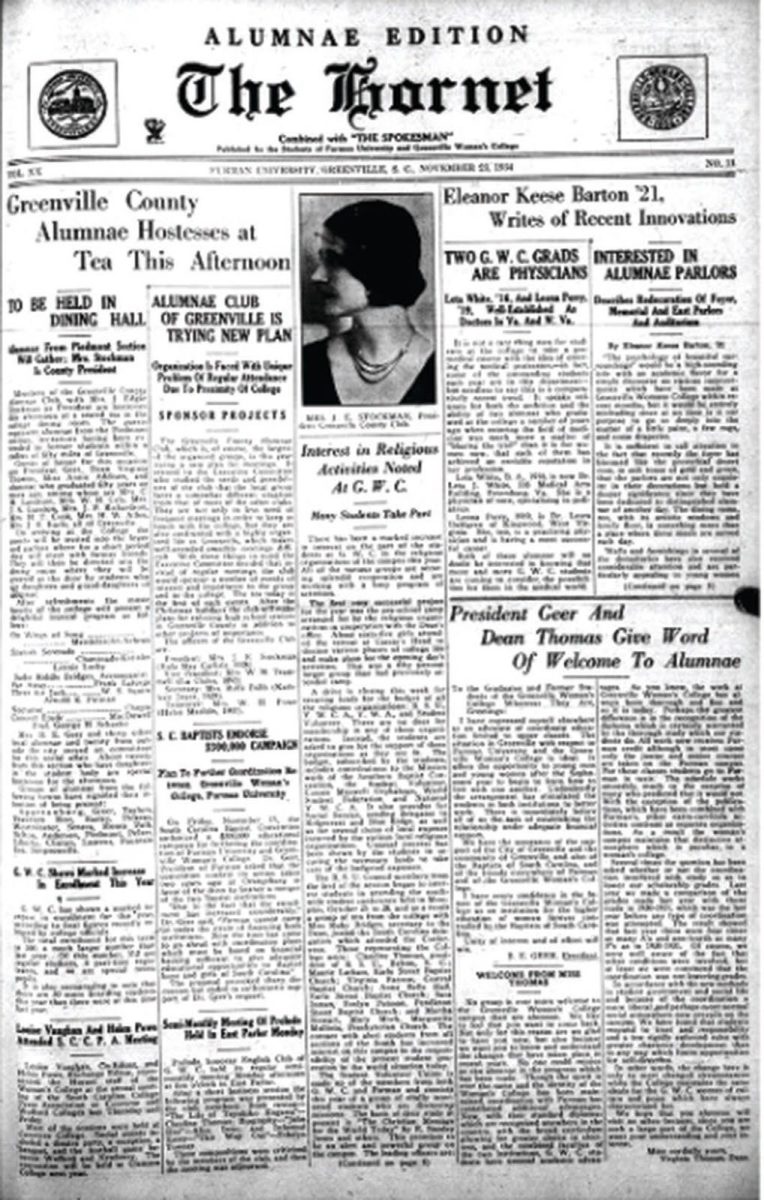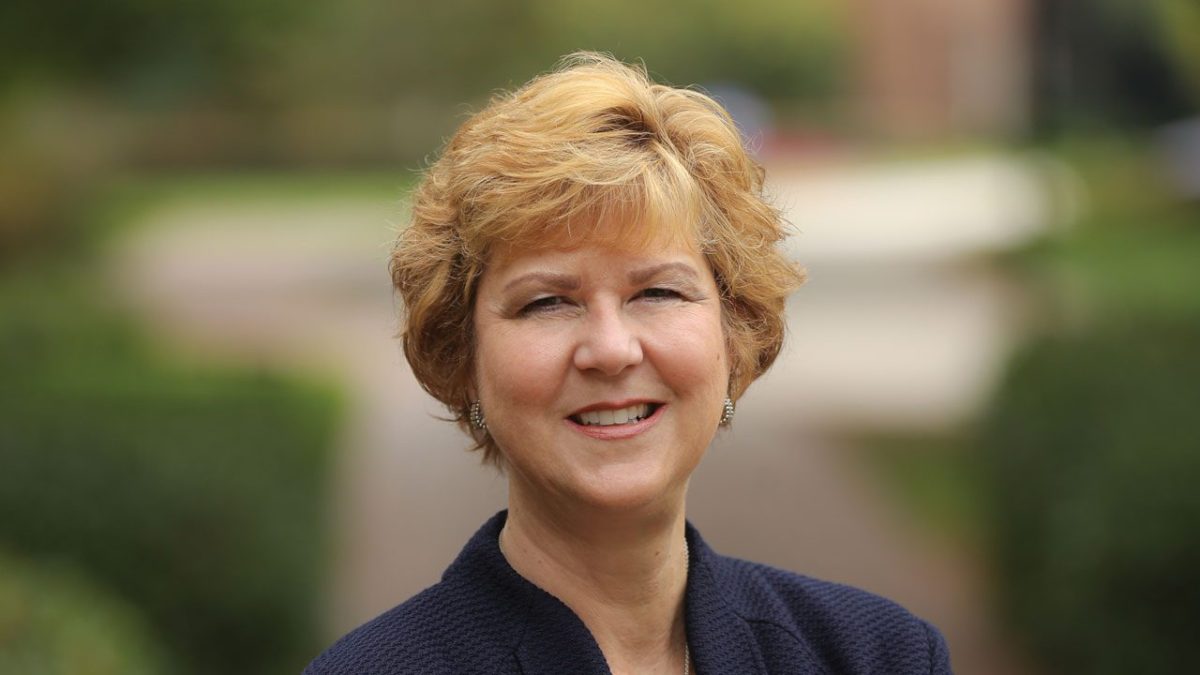

Photos courtesy of Special Collections and Archives, Furman University.
The Furman newspaper staff has escaped and reversed the sexism that plagued the world of journalism. Last spring, The Paladin staff was 75 percent female, but it was not always this way.
Furman’s newspaper has long been the go-to source for reliable information on all things Furman, including the merger between Furman and Greenville Woman’s College (GWC). Nearly all of the information in the library’s online resources about the merger comes from the student newspaper, then called The Hornet.
This could be because the newspaper was one of the first organizations on campus to incorporate the women from GWC. The newspaper first reported in February 1932 that women from GWC would be attending classes at Furman. The Hornet announced in Sept. 1932 that it had incorporated GWC’s newspaper, The Spokesman, into its publication. More importantly, it kept both staffs.
Stephanie Bauer, ‘15, and former editor-in-chief of the Furman student newspaper, renamed The Paladin in 1970, believes this was an incredibly insightful decision.
“One of the things that we do really well at The Paladin is having a lot of diversity, both in terms of being in different clubs and organizations, but also having different perspectives on campus,” Bauer said. “And having a lot of women on staff only adds to that because obviously we have different experiences and perspectives than the men.”
This was as true in 1932 as it today. Over the years, The Hornet continued to celebrate the women and the traditions of The Spokesman. In 1934, the staff of The Hornet devoted an entire issue to recognizing GWC and the women who paved the way for the first generation of Furman women.
Among those women were members of The Spokesman who laid the foundation for the involvement of Furman women in the department that is today called communications studies.
In 2014, the Office of Institutional Assessment and Research reports that 179 Furman students were declared communications studies majors. Junior communications studies major Callie Yow estimates that 70 percent of those were female.
“I think that women enjoy having options, and communications opens doors for the future and allows you to be innovative and create your own path,” Yow said.
For Yow, that path includes spending this semester in Washington, D.C. as part of the Furman Washington Experience program. She emphasizes that she would not be where she is today without the communications studies department.
“Furman has been my springboard for many experiences both on and off campus. From taking Dr. Armstrong’s Communication Law class to studying away in California and currently in Washington, D.C, I have been able to put to use all I have learned to better explore what I want to be doing after I graduate,” Yow said.
Yow hopes one day to work as a creative director, designing layouts, editing material and developing PR and marketing strategies to assist a company in its goals. She wants to combine her passions for helping others and communications to work with a company promoting sustainable development or human rights.
While Yow’s future profession will focus more on digital communications, she recognizes the value of print media such as newspapers.
“I think that there are some things about our society that will not change or become obsolete in the new digital age,” Yow said. “Even though we have access to news 24/7, I think that people enjoy the ‘old’ way of doing things.”
Bauer adds that newspapers will remain invaluable also because of the lessons that come from working as part of newspaper staff. With her degrees in communication studies and political science, Bauer is finding her niche in political nonprofit work. However, she cannot overemphasize the role The Paladin had in helping her to be successful in the political sphere.
“I think the real power in the newspaper is not only that you learn how to write and you learn how to fix writing, but there’s also a good bit of teamwork. You have to rely on so many moving parts. There’s a lot you learn with leadership and how to inspire people to write and work for a newspaper when it’s no money and you’re working like a million hours a week. I think there’s a lot that can be said about being on a team where that’s what’s expected. Sure it’ll make you crazy sometimes, but it’ll make you better for it,” Bauer said.
The hours may be long and newspapers across the country may be feeling the pressure from online news sources, but The Paladin is looking forward to a bright future at the start of these next hundred years, with female staff members helping to lead the way.



























